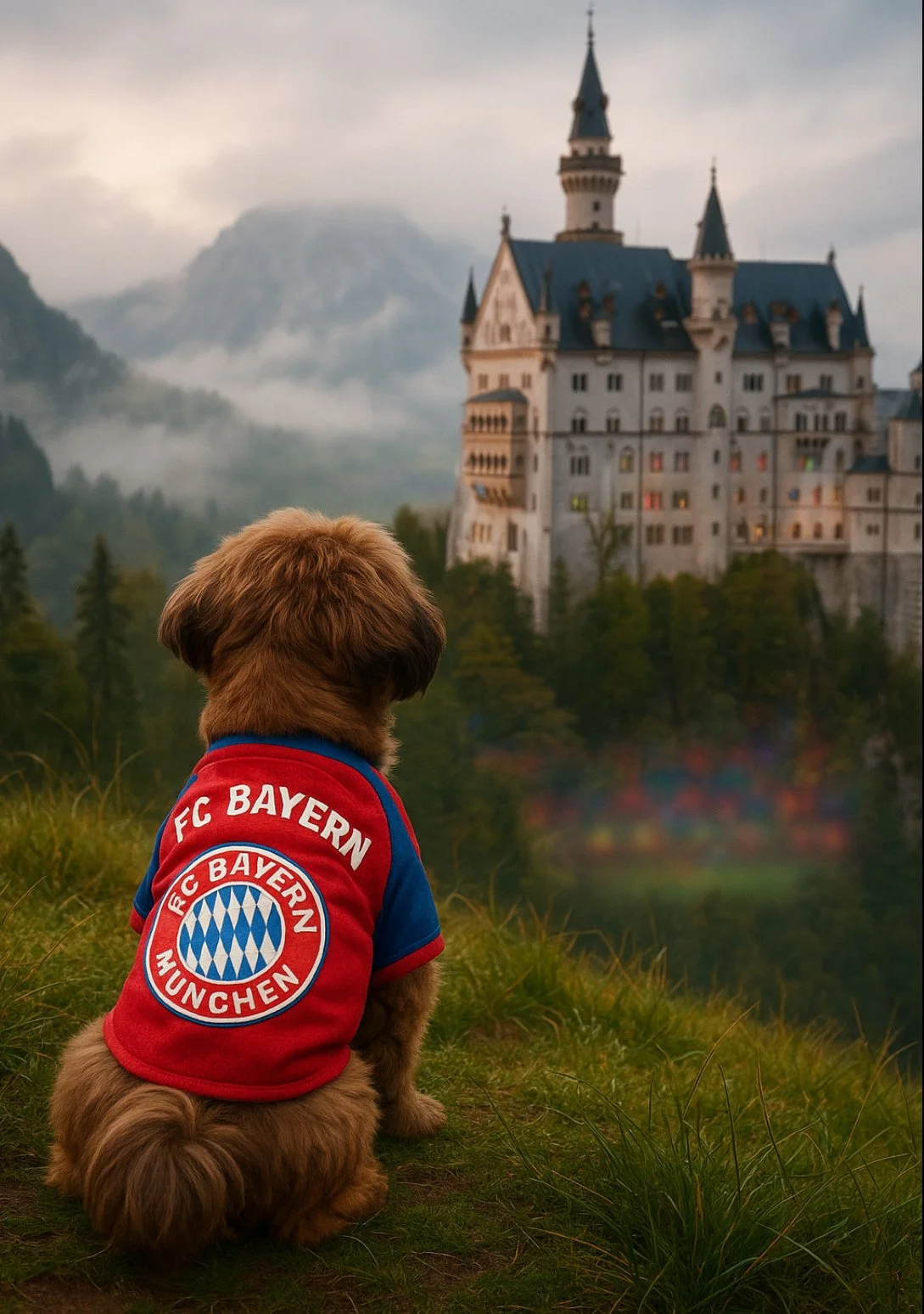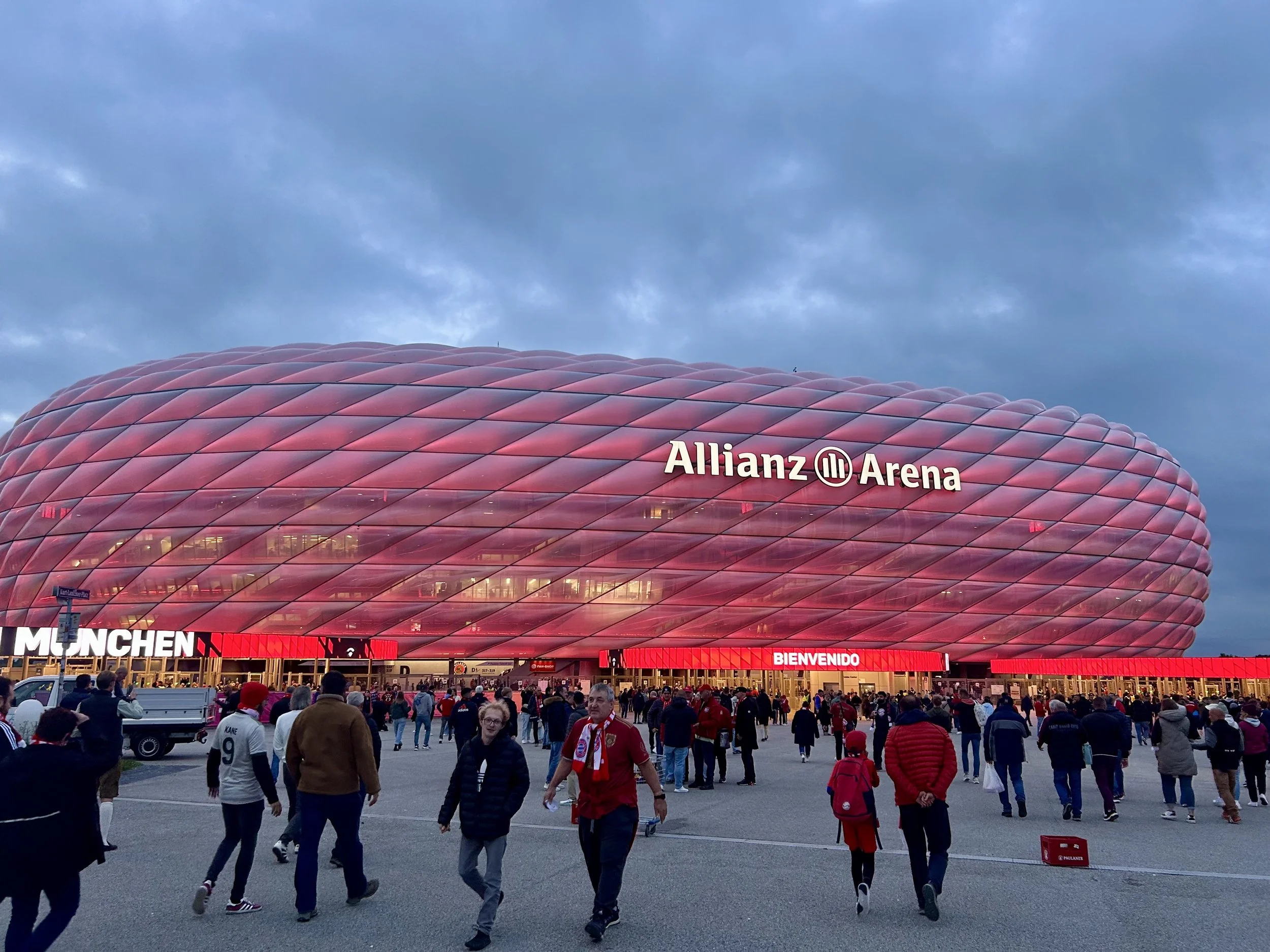Pitch Perfect: From Sidelines to Südkurve
Dear Chewey -
In the heart of Bavaria, perched among mountains and mist, stands Neuschwanstein Castle, the world’s most famous fairy-tale fortress, and Walt Disney’s inspiration for Cinderella’s Castle. Its creator, King Ludwig II of Bavaria, is remembered not so much for his political triumphs, but for his escape from reality.
Born in 1845, Ludwig inherited the throne at just eighteen, a shy and introverted young man ill-suited for the demands of kingship. Bavaria was politically unstable, overshadowed by Prussia, and Ludwig quickly realized he had little real power. The weight of duty, isolation, and disappointment pressed heavily upon him. Rather than confront these realities, Ludwig retreated into a dream world of medieval myths, operatic heroes, and fantasy.
He poured his energy, and his fortune, into constructing castles that seemed ripped from another world. Neuschwanstein, Linderhof, Herrenchiemsee: not seats of power, but monuments to imagination. By day, ministers fretted over politics he ignored. By night, Ludwig immersed himself in Wagner’s operas, letters to long-absent companions, and visions of knights and swan-drawn boats. His people called him der Märchenkönig: the Fairy-Tale King. His critics called him mad. But perhaps he was simply a man who needed to believe in beauty more than he could bear to face reality.
For Ludwig, escapism was survival. Castles became his coping mechanism; walls not just of stone, but of imagination, separating him from the demands of the world outside.
I think often about that need to escape, because I knew it intimately not so long ago.
I rarely talk about the three months I spent in the hospital system after my motorcycle accident. I’m always willing to discuss the totality of my recovery, and sometimes even the nightmares from my lucid coma. But I try hard to avoid thinking, let alone talking about the time in the hospital.
I’m not completely sure why. Maybe it was the embarrassment of it all, not being able to use a restroom and having to rely on nurses, not paid nearly enough, to clean me up. Or the indignity of a condom catheter that burst every few days, leaving me exposed again. Maybe it was the fact that, for the first time since my accident, I felt a fleeting moment of physical relief when a nurse put one of those catheters on me, and I was ashamed of the involuntary reaction it caused.
Maybe it was the dehumanization factor of this time, having so few visitors because of Covid restrictions, and sometimes none at all during outbreaks. Or maybe it was the sound of screams from my hospital neighbor as nurses scrubbed his dying skin after third-degree burns, or the endless, incoherent rambling of my roommate, brain-damaged after leaping in front of a locomotive in a failed suicide attempt.
It could have been the pain, both mental and physical, as each surgery to repair my leg failed, ultimately sending me into a panic attack where I attempted to forcibly remove my stabilizing neck collar as nurses attempted to restrain and sedate me. Or maybe it was the creeping dependence on Dilaudid, the drug now blurring days and nights until I no longer cared which was which.
Whatever the reasons for shutting those memories away, I do know this: I spent three long months unable to use my legs or even my hands. And, like Ludwig, I would have done anything to escape my reality. My fortress wasn’t carved into a Bavarian hillside; it was a hospital bed. The iPad at my side became my Neuschwanstein. Nurses turned it on for me, and through its glow I slipped into another world.
I often found this new world in the form of European soccer, matches streamed from stadiums thousands of miles away, filled with chants, banners, and the kind of collective joy that felt impossibly distant from the sterile quiet of the ward. Heavily drugged, often alone, I built my own fantasy: one day, I would be there, in person, among the noise and the color. In truth, I doubted it. Recovery seemed endless, and the dream felt as unreachable as Ludwig’s swan-drawn knights.
And yet, yesterday, I found myself in Munich, not as a dreamer, but as a witness, standing just above the Südkurve at an FC Bayern soccer match. The roar of the crowd, the crack of the ball against the pitch, the rhythm of chants rolling through the stands. And at some point, I forgot the score of the match…I paused. I looked around. I took in the sights, sounds, and smells, and….I smiled. It was truly pitch perfect in every sense of the phrase. What had once been an escape had somehow become an arrival.
If there’s one thing I carried with me from those hospital months, it’s gratitude…gratitude for the power of dreams to sustain us when life feels unbearable, and gratitude for the chance to finally stand in the places I once only imagined. Escapism can keep us alive, but at some point we have to push beyond the fantasy. We have to leave the castles behind, step out of the hospital bed, and walk, and maybe even stumble toward the life waiting outside.
Yesterday in Munich, from sidelines to Südkurve, I did just that.
From bed to pitch. From dreaming to doing. From fantasy to life.
And while FC Bayern prevailed last night, this seemed a very distant second to my own victory in that moment.
Miss you bud,
Dad

